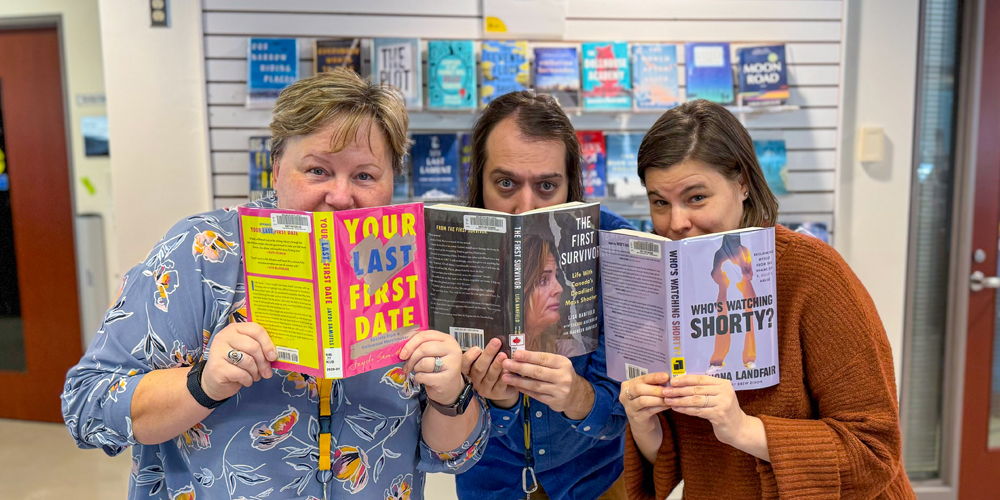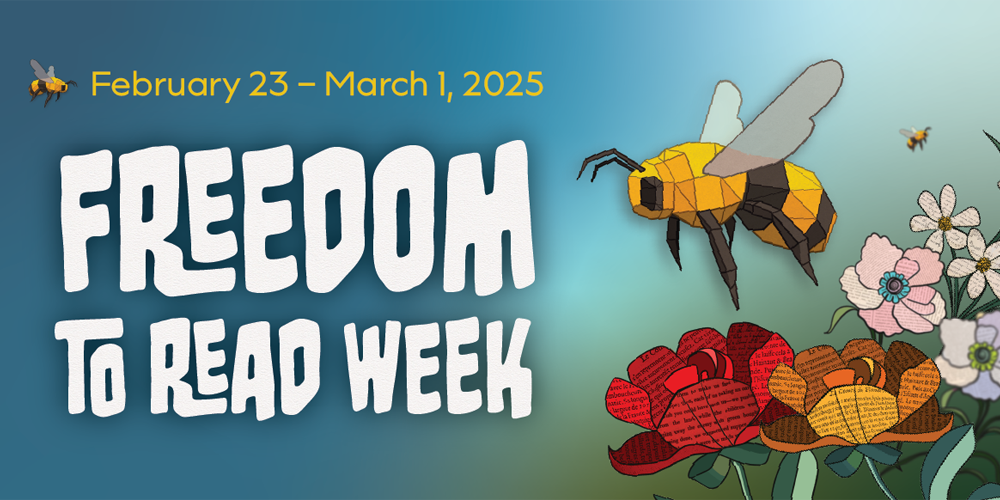
Banned Books & Our Freedom to Read
Thousands of books are challenged around the world every year for political, legal, religious, or moral reasons. And, sometimes they are removed from schools or libraries because some people consider them inappropriate. Every time a challenged book is removed from a shelf, it means that someone else is deciding what information or point of view you can access, explore, and question. This is what intellectual freedom is all about. The Canadian Federation of Library Associations describes it as your right to have an opinion and to seek and receive information, including that which some individuals and groups consider unconventional, unpopular, or unacceptable.
As a library, intellectual freedom is one of our core values. We believe that providing a wide range of materials for people to read and learn from is key to democracy. How can we learn and grow if we can’t access books that stretch and challenge us? How can we empathize with different perspectives if we can’t access those points of view? We celebrate Freedom to Read Week during the last week of February to reinforce the value of intellectual freedom.
Banned Books Over the Years
Here are some popular titles by Canadian writers that were challenged in the first quarter of the 21st century. Do any of these books surprise you?
Pink, Blue, and You! (2022)
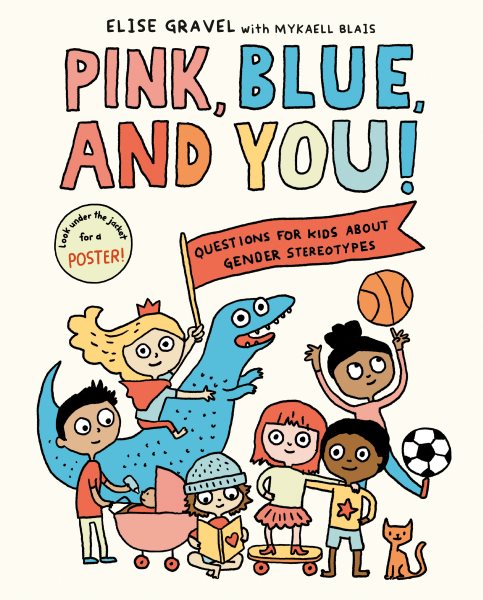
This family-friendly picture book by Quebec author-illustrator Elise Gravel and transgender collaborator Mykaell Blais invites young readers to explore questions about gender roles, stereotypes, and acceptance in a simple and engaging way, encouraging open conversations about identity and self-expression. It was challenged in the United States for discussing gender identity.
Borrow Pink, Blue, and You! by Elise Gravel and Mykaell Blais
Sisters of the Wolf (2021)
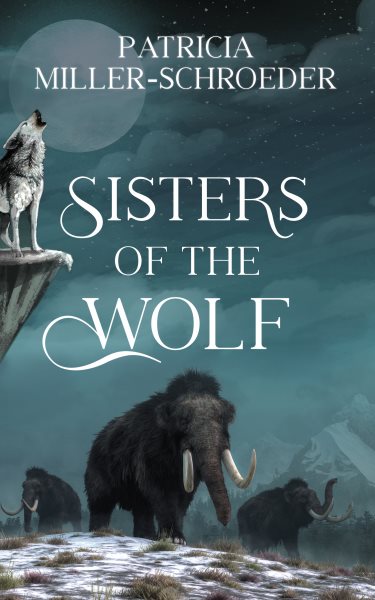
Winner of the 2023 Saskatchewan Book Awards, YA Fiction. Two Ice Age teens from different cultures must set aside their differences and rely on each other to survive a perilous journey, with a fierce hunter in pursuit and a mysterious she-wolf as their spirit guide.
Borrow Sisters of the Wolf by Patricia Miller-Schroeder
The Great Bear (2021)
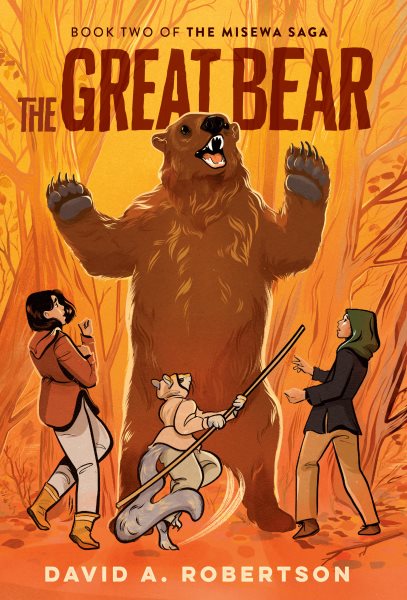
In this Indigenous fantasy adventure, two friends travel back in time to help their animal companions and confront new challenges, all while grappling with struggles in their own lives back home.
This book, along with Sisters of the Wolf, was challenged in Durham Region, citing potentially harmful content, but was not removed from the school’s collection after a review.
Borrow The Great Bear by David A. Robertson
Milk and Honey (2014)
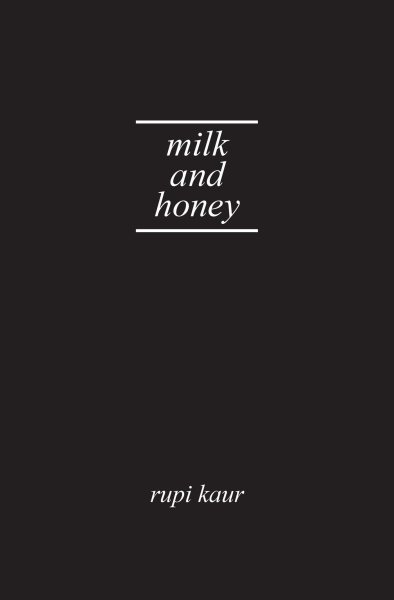
Rupi Kaur’s debut collection of poetry and prose explores themes of pain, resilience, and healing, and ultimately finding beauty in even the most difficult moments of life. One of the highest-selling poetry books of the 21st century at over three million copies, and a #1 New York Times bestseller, Milk and Honey was one of 52 titles removed from Utah’s largest school district in 2022.
Borrow Milk and Honey by Rupi Kaur
When Everything Feels Like the Movies (2014)
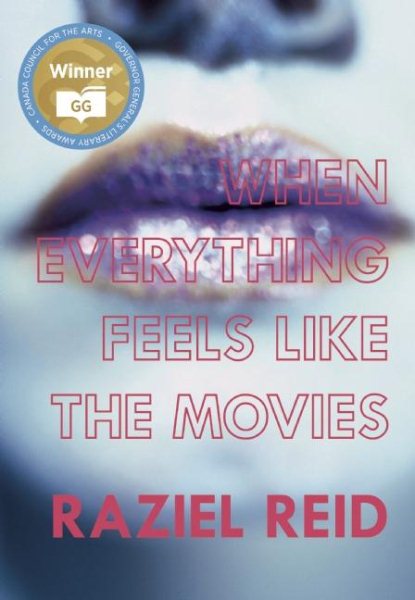
A high school misfit with a flair for drama navigates a world of cliques, friendships, and unfiltered emotions, setting the stage for a spectacular—and messy—collision of love, identity, and rebellion. This winner of the 2014 Governor General’s Award for Children’s Literature was challenged for “offensive” and “inappropriate” content by a group of concerned parents, authors, and teachers petitioning to revoke the award.
Borrow When Everything Feels Like the Movies by Raziel Reid
This One Summer (2014)

Winner of the 2014 Governor General's Award for Children's Illustration (English). Two longtime summer friends experience a season of change as they witness family conflicts, teenage drama, and unspoken secrets, realizing that growing up means seeing the world—and the people in it—differently. It was challenged and removed from school libraries in three U.S. states, the reasons given were inappropriate language and themes.
Borrow This One Summer by Jillian Tamaki and Mariko Tamaki
Essex County (2009)
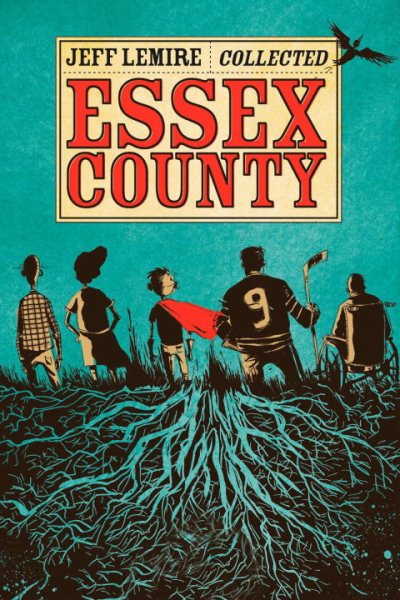
This moving graphic novel weaves together the lives of a small-town Ontario farming community, revealing generations of love, loss, and buried secrets that shape the bonds between family and neighbours. New York Times Bestselling cartoonist Jeff Lemire earned a Joe Shuster Award, Canada’s national comics industry award, for this title in 2008. The story was challenged in Ontario in 2011 for offensive language.
Borrow Essex County by Jeff Lemire
The Book of Negroes (2007)
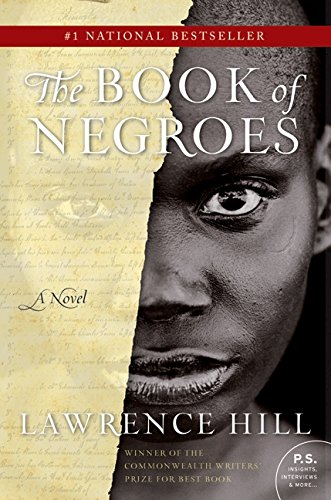
Winner of the 2008 Commonwealth Writers’ Prize and Ontario Library Association Evergreen Award. A young girl abducted from West Africa endures the brutal journey of slavery, fights for her freedom during the American Revolution, and embarks on a harrowing quest for a true home, uncovering little-known history along the way. Readers in the Netherlands objected to the N-word and publicly burned copies of the Dutch edition’s cover.
Borrow The Book of Negroes by Lawrence Hill
Celebrate Freedom to Read
During Freedom to Read Week, February 23 to March 1, 2025, we want to encourage people to think about and reaffirm their commitment to intellectual freedom, which is guaranteed under the Canadian Charter of Rights and Freedoms. To celebrate, we encourage you to visit any of our locations to borrow and read a banned or challenged book. Check out some of our in-branch displays and start a conversation with your families and friends!
Take a look at these BPL Staff Pick Booklists



